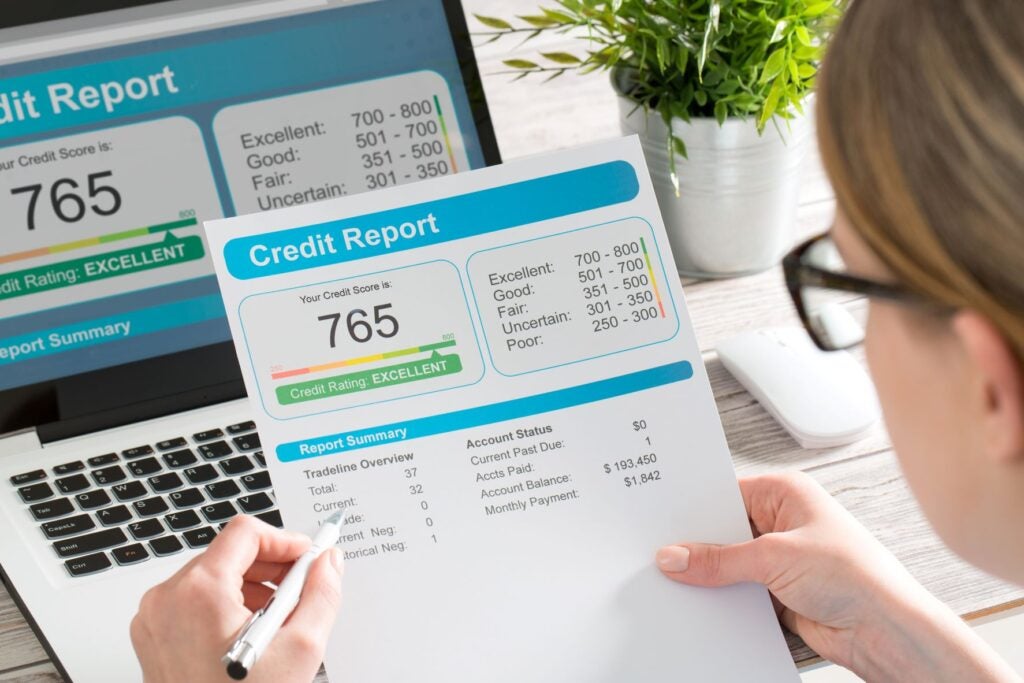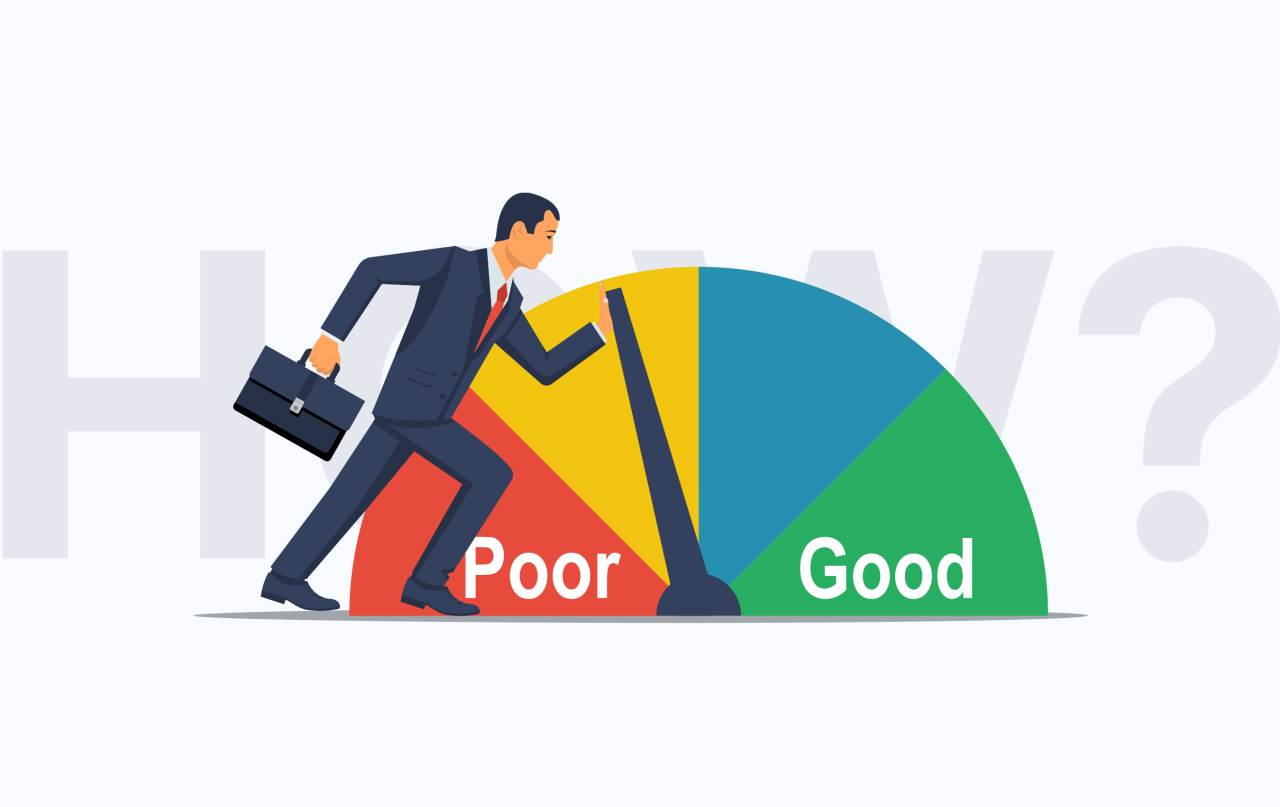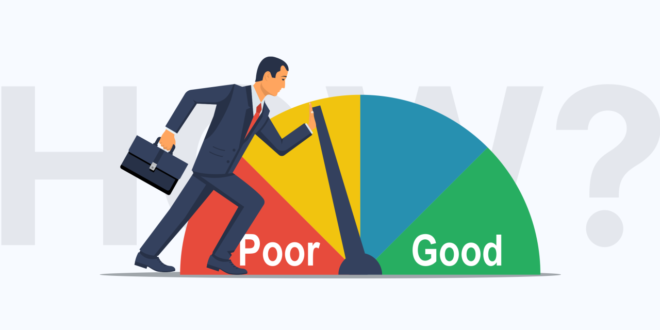Small business credit building is the cornerstone of financial stability, allowing entrepreneurs to access essential funding and secure their future growth. A robust credit score unlocks a world of opportunities, from securing loans at favorable interest rates to attracting investors and building lasting relationships with suppliers.
Understanding the intricacies of credit scores, the various credit reporting agencies, and the strategies for building a positive credit history is crucial for any small business owner. By mastering these concepts, entrepreneurs can pave the way for a thriving and sustainable business.
Importance of Credit Building for Small Businesses

Building a strong credit score is essential for any small business, as it plays a crucial role in securing loans and financing for growth and expansion. A good credit score can open doors to opportunities that might otherwise be unavailable, while a poor credit score can severely hinder a business’s ability to thrive.
Impact of Credit Score on Securing Loans and Financing
A credit score is a numerical representation of a business’s creditworthiness, reflecting its ability to repay borrowed funds. Lenders use this score to assess the risk associated with lending money to a particular business. A higher credit score indicates a lower risk, making a business more attractive to lenders and increasing the likelihood of loan approval. Conversely, a lower credit score signals a higher risk, potentially leading to loan rejection or unfavorable loan terms, such as higher interest rates and stricter repayment conditions.
Benefits of a Good Credit Score
A good credit score brings numerous advantages to a small business:
- Lower Interest Rates: Lenders often offer lower interest rates to businesses with strong credit scores, reducing the overall cost of borrowing and increasing profitability. For example, a business with a credit score of 750 might qualify for a loan with a 5% interest rate, while a business with a score of 600 might face a 10% interest rate, significantly impacting the cost of financing.
- Easier Access to Capital: A good credit score makes it easier for businesses to secure loans and other forms of financing, including lines of credit, merchant cash advances, and equipment financing. This access to capital enables businesses to invest in growth initiatives, such as expanding operations, purchasing new equipment, or hiring additional staff.
- Improved Business Reputation: A strong credit score reflects a business’s financial responsibility and stability, enhancing its reputation among suppliers, customers, and potential investors. This positive perception can lead to better relationships with stakeholders, increased trust, and greater confidence in the business’s ability to meet its financial obligations.
Negative Impact of a Poor Credit Score
A poor credit score can significantly hinder a small business’s growth and stability:
- Loan Rejection: Businesses with poor credit scores are more likely to face loan rejection, limiting their access to crucial funding for operations and expansion. This can severely restrict a business’s ability to compete and grow in a dynamic market.
- Higher Interest Rates: If a loan is approved, businesses with poor credit scores often face significantly higher interest rates compared to those with good credit. These higher rates increase the cost of borrowing, reducing profitability and potentially jeopardizing the business’s financial stability.
- Limited Financing Options: A poor credit score can restrict a business’s access to various financing options, including lines of credit, merchant cash advances, and equipment financing. This lack of flexibility can hinder a business’s ability to seize opportunities and respond to market demands effectively.
- Negative Impact on Business Relationships: A poor credit score can damage a business’s reputation among suppliers, customers, and potential investors. This can lead to strained relationships, limited trust, and difficulty securing favorable terms with stakeholders.
Understanding Credit Scores and Reports

Knowing your credit score and understanding how it’s calculated is essential for any business owner. A strong credit score can unlock access to favorable loan terms, lower interest rates, and even better supplier agreements.
Credit Score Components
Your credit score is a numerical representation of your creditworthiness. It’s based on several factors, including:
- Payment History: This is the most significant factor, accounting for about 35% of your score. It reflects your track record of paying bills on time, including loan payments, credit card bills, and utility bills. Late payments or missed payments can significantly lower your score.
- Credit Utilization: This refers to the amount of credit you’re using compared to your available credit limit. It’s generally recommended to keep your credit utilization ratio below 30%. A high utilization ratio suggests you’re relying heavily on credit, which can negatively impact your score.
- Length of Credit History: The longer your credit history, the better. This factor accounts for about 15% of your score. Having a long credit history demonstrates a consistent track record of responsible credit use, which lenders view favorably.
- Credit Mix: This refers to the different types of credit you have, such as credit cards, installment loans, and mortgages. Having a diverse credit mix shows lenders that you can manage various credit products responsibly.
- New Credit: This refers to the recent inquiries on your credit report. Each time you apply for credit, a hard inquiry is placed on your report, which can temporarily lower your score.
Credit Bureaus
There are three major credit bureaus in the United States: Experian, Equifax, and TransUnion. These bureaus collect and report credit information from lenders and other creditors. They use this information to generate your credit report, which summarizes your credit history. Each bureau may have slightly different information about you, so it’s essential to check all three.
Accessing Credit Reports and Scores
You can access your credit reports for free once a year from each of the three bureaus through AnnualCreditReport.com. You can also obtain your credit score from various sources, including credit card companies, banks, and third-party credit monitoring services. Some credit monitoring services offer free trials or discounted rates.
Strategies for Building Credit: Small Business Credit Building
Building credit for your small business is essential for securing loans, obtaining favorable financing terms, and gaining access to vital resources. A strong credit history allows you to demonstrate financial stability and trustworthiness, paving the way for business growth and success.
Establishing Credit, Small business credit building
Building a positive credit history for your small business involves a series of strategic steps. These steps will help you establish a credit profile and demonstrate your creditworthiness to lenders.
- Obtain a Business Tax Identification Number (TIN): This number, also known as an Employer Identification Number (EIN), is crucial for opening business bank accounts and obtaining credit. You can apply for a TIN online through the IRS website.
- Open a Business Bank Account: Separating your business finances from your personal finances is essential for maintaining good credit. A dedicated business bank account allows you to track income and expenses effectively.
- Apply for a Business Credit Card: A business credit card can help you build credit and earn rewards. Look for cards with competitive interest rates, rewards programs, and perks that align with your business needs.
- When choosing a card, consider factors such as annual fees, rewards programs, interest rates, and credit limits.
- Ensure the card is accepted by your suppliers and vendors to maximize its utility.
- Establish Trade Credit with Suppliers: Building relationships with suppliers and paying invoices on time can establish a positive trade credit history. Trade credit allows you to purchase goods and services on credit, increasing your purchasing power.
- Negotiate payment terms with suppliers, such as net 30 or net 60, to ensure you have sufficient time to pay invoices.
- Maintain a consistent and timely payment history to build a strong relationship with suppliers.
- Obtain a Business Loan: Securing a small business loan, even a small one, can help you establish a positive credit history. Start with a loan from a local bank or credit union.
- A loan from a reputable financial institution can demonstrate your creditworthiness and financial responsibility to other lenders.
- Maintain a positive payment history on the loan to further enhance your credit profile.
Using Credit Responsibly
Using credit responsibly is essential for maintaining a positive credit score and maximizing your borrowing power.
- Keep Credit Utilization Low: Credit utilization refers to the amount of credit you’re using compared to your available credit limit. Aim to keep your utilization below 30% to avoid negatively impacting your credit score.
- A lower utilization ratio indicates responsible credit management and can improve your creditworthiness.
- Monitoring your utilization and making payments on time can help you avoid exceeding your credit limits.
- Pay Bills on Time: Making timely payments is crucial for building and maintaining good credit. Late payments can significantly damage your credit score.
- Set up automatic payments or reminders to ensure bills are paid on time.
- Review your payment history regularly to identify any potential issues and address them promptly.
- Avoid Opening Too Many Accounts: While opening new accounts can help build credit, opening too many accounts in a short period can negatively impact your credit score.
- Lenders may perceive multiple new accounts as a sign of financial instability.
- Focus on managing existing accounts responsibly before opening new ones.
Building Relationships with Suppliers
Establishing and nurturing relationships with suppliers is essential for building trade credit and fostering business growth.
- Negotiate Favorable Payment Terms: Discuss payment terms with suppliers to find a mutually beneficial arrangement.
- Negotiate extended payment terms, such as net 30 or net 60, to provide you with more time to pay invoices.
- Explore options for early payment discounts to incentivize timely payments.
- Maintain a Consistent Payment History: Pay invoices on time and consistently to demonstrate your reliability and financial stability.
- Establish a system for tracking invoices and deadlines to ensure timely payments.
- Consider setting up automatic payments or reminders to avoid late payments.
- Communicate Effectively: Open and honest communication with suppliers is crucial for building trust and maintaining positive relationships.
- Inform suppliers of any potential payment delays or challenges promptly.
- Seek to resolve any payment disputes amicably and professionally.
Credit Reporting for Small Businesses
Credit reporting is an essential part of building and maintaining a strong credit score for your small business. It’s how lenders and other businesses assess your creditworthiness, which can significantly impact your ability to secure financing, obtain favorable terms, and even get approved for utilities or business lines of credit. Understanding how credit reporting works for small businesses is crucial for making informed decisions and maximizing your credit potential.
Credit Reporting Agencies and Their Methods
The three major credit reporting agencies (CRAs) that collect and disseminate credit information for small businesses are Experian, Equifax, and Dun & Bradstreet (D&B). Each agency has its unique reporting methods and focuses on different aspects of a business’s credit history.
| Agency | Reporting Methods | Focus |
|---|---|---|
| Experian | Collects data from various sources, including banks, credit card companies, and other lenders. Reports on business credit lines, loans, and other financial obligations. | Business credit lines, loans, and other financial obligations. |
| Equifax | Similar to Experian, collects data from a variety of sources, including lenders, suppliers, and utility companies. Reports on business credit lines, loans, and trade lines. | Business credit lines, loans, and trade lines. |
| Dun & Bradstreet (D&B) | Focuses on collecting data from businesses, including financial statements, payment history, and other business information. Reports on business creditworthiness, financial stability, and payment history. | Business creditworthiness, financial stability, and payment history. |
Monitoring and Disputing Credit Reports
Small businesses can access their credit reports from each CRA and monitor their credit scores regularly. It’s important to review your reports for any inaccuracies or errors. If you find any discrepancies, you can dispute them with the CRA.
- Access Your Credit Reports: You can obtain your business credit reports directly from each CRA or through a third-party credit monitoring service.
- Review for Errors: Carefully examine each report for any inaccuracies, such as incorrect information about your business, outstanding balances, or late payments.
- File a Dispute: If you find any errors, contact the CRA directly and file a dispute. You’ll need to provide supporting documentation to prove the error.
- Follow Up: After filing a dispute, follow up with the CRA to track its progress and ensure the error is corrected.
Maximizing Credit Reporting
Small businesses can take steps to maximize their credit reporting and improve their credit scores.
- Pay Bills on Time: Making timely payments on all business obligations is crucial for building a positive credit history.
- Establish Business Credit: Apply for business credit cards, lines of credit, or loans to establish a credit history specifically for your business.
- Maintain a Healthy Credit Mix: Having a mix of different types of credit, such as revolving credit (credit cards) and installment credit (loans), can demonstrate responsible credit management.
- Monitor Credit Utilization: Keep your credit utilization ratio low, ideally below 30%. This ratio represents the amount of available credit you’re using.
- Check for Negative Items: Periodically review your credit reports for any negative items, such as collections or bankruptcies. If you find any, take steps to resolve them or provide context to potential lenders.
Funding Options for Small Businesses with Limited Credit
Building a strong credit history takes time, and many small businesses start with limited credit. This can make it challenging to secure traditional loans from banks. However, various alternative funding options can help businesses get the capital they need to grow.
SBA Loans
The Small Business Administration (SBA) offers loan programs designed to help small businesses access capital. These programs are backed by the government, making them more attractive to lenders and often offering lower interest rates and more flexible terms than traditional loans.
- 7(a) Loan Program: This is the most common SBA loan program, providing up to $5 million for a variety of business purposes, including working capital, equipment purchases, and real estate. The SBA guarantees a portion of the loan, reducing the risk for lenders and making it easier for businesses with limited credit to qualify.
- 504 Loan Program: This program focuses on fixed assets, such as land, buildings, and machinery. It requires a down payment of 10% and offers long-term financing with low interest rates.
- Microloans: These loans are smaller, typically up to $50,000, and designed to help small businesses get started or expand. Microloans are often provided through community development financial institutions (CDFIs) and are available to businesses with limited credit history.
Pros:
- Lower interest rates and longer repayment terms than traditional loans
- Government backing reduces lender risk, making it easier for businesses with limited credit to qualify
- Access to resources and support services from the SBA
Cons:
- The application process can be lengthy and complex
- SBA loans may have stricter eligibility requirements than traditional loans
- Businesses may need to provide collateral for some loans
Example:
“A bakery with limited credit history was able to secure an SBA 7(a) loan to expand its operations and open a second location. The SBA guarantee helped the lender feel more confident in the loan, despite the bakery’s limited credit history.”
Crowdfunding
Crowdfunding platforms allow businesses to raise capital from a large number of individuals, often through online platforms. There are several different types of crowdfunding:
- Rewards-based crowdfunding: Businesses offer rewards to investors in exchange for their contributions. Rewards can range from products or services to exclusive experiences.
- Equity crowdfunding: Investors receive equity in the business in exchange for their contributions.
- Debt crowdfunding: Investors lend money to the business and receive interest payments in return.
Pros:
- Can be a good option for businesses with limited credit history
- Allows businesses to build a community around their brand
- Can be used to raise capital for a variety of purposes, including product development, marketing, and expansion
Cons:
- Can be time-consuming and require significant marketing efforts
- Not all crowdfunding campaigns are successful
- May not be suitable for all businesses
Example:
“A tech startup with limited credit history successfully raised over $1 million through a rewards-based crowdfunding campaign. They offered early access to their product and exclusive merchandise to investors, generating significant buzz and attracting a large number of backers.”
Peer-to-Peer Lending
Peer-to-peer (P2P) lending platforms connect borrowers with individual investors. These platforms typically have less stringent credit requirements than traditional lenders, making them a viable option for businesses with limited credit history.
- Pros:
- Often faster and easier to qualify for than traditional loans
- Can offer more flexible terms than traditional loans
- Can be a good option for businesses with limited credit history
- Cons:
- Interest rates can be higher than traditional loans
- May not be available for all businesses
- Investors may have stricter requirements than traditional lenders
Example:
“A small restaurant with limited credit history was able to secure a P2P loan to renovate its kitchen. The loan was approved quickly and the restaurant was able to access the funds within a few weeks.”
Final Thoughts

Building small business credit requires a strategic approach, encompassing responsible credit utilization, timely payments, and consistent monitoring of credit reports. While challenges may arise, the rewards of a strong credit score are undeniable, empowering businesses to navigate financial landscapes with confidence and achieve their full potential.
Question & Answer Hub
What is the difference between a personal credit score and a business credit score?
A personal credit score reflects your individual financial history, while a business credit score assesses the financial health of your company. They are separate entities and are not directly linked.
How long does it take to build business credit?
Building business credit takes time and consistent effort. It typically takes 6-12 months to establish a credit history and see improvements in your score.
Can I use my personal credit to secure business financing?
While some lenders may consider your personal credit, it’s generally not sufficient to secure significant business financing. Building separate business credit is essential for long-term financial stability.
What are the consequences of a poor business credit score?
A low business credit score can result in higher interest rates on loans, limited access to funding, and difficulty securing business lines of credit. It can also damage your reputation and make it challenging to attract investors.
 Norfolk Publications Publications ORG in Norfolk!
Norfolk Publications Publications ORG in Norfolk!

